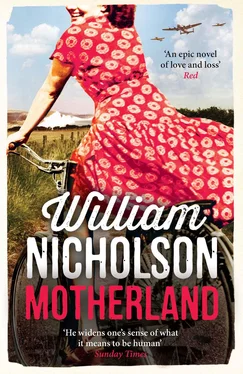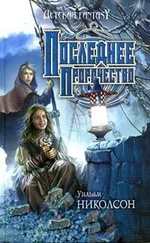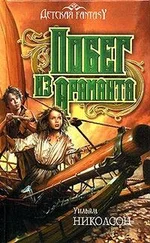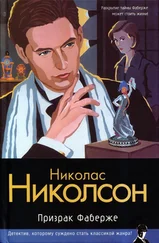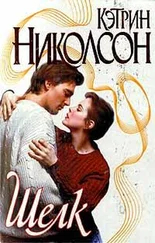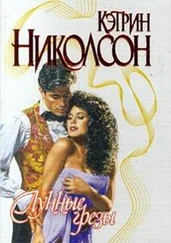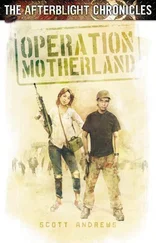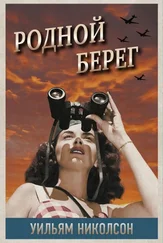‘Why didn’t you wake me before?’
‘You did not so order me, Captain Sahib.’
He splashes water onto his face, brushes his hair, straightens the uniform that he has slept in, and hurries back through the great house. There seem to be more turns in the corridors than he remembers, and no clear indication of which way to go. All he can think to do is keep walking until he finds someone to ask.
He’s hurrying down a broader corridor than the others when a door opens and a voice says, ‘Could you help?’
It’s Lady Mountbatten, thin, elegant, careworn.
‘It’s my little dog,’ she says. ‘He’s done his business on the floor here, and my khidmutgar says he won’t touch it. I don’t want to step on it myself. So I wonder if you could hunt me out a servant of low enough caste to deal with it?’
Larry can’t help smiling, and seeing him smile Lady Mountbatten smiles too.
‘Yes, I know,’ she says. ‘It’s all too ridiculous for words.’
‘Why don’t I deal with it,’ says Larry.
He takes some lavatory paper from the viceregal bathroom and picks up the dog mess and flushes it away.
‘Now you bad boy,’ says Lady Mountbatten to her little Sealyham. ‘You are so kind,’ she says to Larry. ‘Who are you?’
Larry introduces himself.
‘Oh, yes. Dickie did tell me. Something about bananas.’
‘Is there anything else I can do, your ladyship?’
‘You can get me out of here. I can’t bear this house. It’s a mausoleum. I feel like a corpse. Don’t you? I know it’s supposed to be Lutyens’s masterpiece, but I can’t imagine what he thought he was doing, putting up such a monstrosity.’
‘Intimidating the natives, I think,’ says Larry.
Lady Mountbatten gives Larry a sharp look of surprise.
‘Just so,’ she says.
* * *
The next two days are taken up with organising the swearing-in ceremony of the new viceroy. Alan Campbell-Johnson has discovered that the press were badly handled at the airfield when the Mountbattens arrived, and are making complaints. The Sunday edition of Dawn shows a photograph of Ronnie Brockman and Elizabeth Ward described as ‘Lord and Lady Louis arriving’. Campbell-Johnson asks for an extra pair of hands in the press room, and is given Larry. He takes him into the Durbar Hall. A high platform is being built in the dome.
‘The idea is we put the newsreel boys and the cameramen up there,’ says Alan. ‘There’s going to be twenty-two of them. I want you to get them up there, and then down again.’
‘Is it safe?’ says Larry, gazing up.
‘God knows,’ says Alan. ‘It’s Dickie’s idea. They won’t like it, I can tell you now.’
Larry is kept too busy in Viceroy’s House to venture into the old city, but reports come through of a riot in the main shopping street of Chandni Chowk. Apparently a meeting of Muslims at the great mosque of Jama Masjid has been attacked by lorry-loads of Sikhs brandishing kirpans, and several people are dead. Syed Tarkhan tells Larry over a hurried lunch, ‘You see, this is why we must have Pakistan. We must have a homeland.’
When the time for the ceremony arrives, Larry shepherds his flock of cameramen. They grumble openly about being made to go on the high platform, but once up there they realise the advantage of the viewpoint. Larry takes up a place on the platform also. The hall below fills with Indian princes arrayed in jewelled robes, and English gentlemen in tailcoats, and politicians of the Hindu nationalist Congress party proudly wearing homespun kurtas, in the tradition of Gandhi. Two red and gold thrones stand beneath the scarlet-draped canopy, illuminated by concealed lights.
‘It’s like a bloody movie set!’ exclaims an American newsreel cameraman.
The ceremony begins with a startlingly loud fanfare from trumpeters placed in the roof. Then the ADCs in their dress uniforms come stalking slowly down the centre aisle, between the crush of dignitaries. After them, side by side, come Lord and Lady Mountbatten, both in white. Mountbatten wears a mass of medals and decorations, a ceremonial sword at his side. Lady Mountbatten wears an ivory brocade dress of inspired simplicity, and long white gloves above the elbow, and a dark blue sash. The cameramen go crazy, popping their flashbulbs at the grandeur of the moment. Larry, looking on, is more struck by how plainly Lady Mountbatten presents herself. No tiara, no necklace, just the grave dignity of her slender figure.
The Lord Chief Justice of India, Sir Patrick Spens, administers the oath of office. The new viceroy then makes a short address. Up on the platform Larry is unable to hear his words; and he sees from their postures that the politicians below are straining to hear. Later, when the short ceremony is over, Alan thrusts a number of stencilled copies into Larry’s hands, saying, ‘Make sure they all get this. No one heard a bloody word.’
It turns out Mountbatten has asked India to help him in the difficult task ahead. This seems natural enough to Larry, but from the reaction of the press it’s unprecedented. Eric Britter of The Times says it’s as good as admitting the British have made mistakes in India, and if so, it’ll win Mountbatten a lot of friends.
Rupert Blundell and Larry escape the marbled halls of Viceroy’s House that afternoon, and Larry gets his first taste of the real India. They drive into old Delhi, which is now under curfew following the riot. There are no signs of the recent violence. The alleyways and bazaars are bursting with life and noise and colour. Everywhere Larry looks he sees, with his painter’s eye, thrilling and jarring juxtapositions of scarlets and ambers and deep greens. The air smells rich with perfume and tobacco, dung and sweat. On foot now, moving through the bazaar, the crowd surges past them on either side, parting before them without touching them. Larry remembers Lady Mountbatten saying, ‘I feel like a corpse.’ It seems to him then that his people, the British, are dead, and only the Indian people are alive.
‘What are we doing here?’ he says to Rupert. ‘I mean here, ruling India.’
‘Not for much longer,’ says Rupert.
‘This isn’t our country. This is another world.’
‘Does it frighten you?’
‘Frighten me?’ Larry hasn’t thought of it this way, but now that Rupert says it he realises it’s true. ‘Yes, in a way.’
‘We English set such a high value on moderation. It strikes me that India is not moderate.’
An ox-cart passes, its driver shouting at the crowds in his way. Several voices shout back, hands raised in the air. The cart is piled high with manure and clouded with flies. There are children everywhere, their big solemn eyes tracking the Englishmen as they go by.
‘The sooner we get out the better,’ says Larry.
‘If only it were as simple as that,’ says Rupert. ‘I’m part of the policy planning group. Our options are very limited. You could say the pot is boiling, and we’re the lid.’
* * *
Over the next week the leaders of India take their turns in talks with Mountbatten. Larry, officially appointed assistant press attaché, is initiated into the complexities of the independence process. Syed Tarkhan shows him on the map of India how the Muslims are concentrated in what is called the ‘ears of the elephant’, Punjab in the north-west and Bengal in the northeast.
‘This will be Pakistan,’ he says. ‘Jinnah will accept nothing less. There must be partition. We Muslims cannot live in a Hindu-controlled nation.’
‘But you’ve lived in a British-controlled nation.’
‘That is different.’
The difficulty with partition is that the ‘ears’ are not exclusively Muslim, and the rest of the elephant far from exclusively Hindu. What is to happen to the many who will find themselves in a fearful minority? Syed Tarkhan shakes his head over this.
Читать дальше
